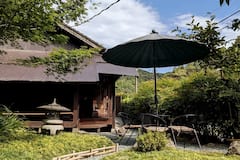Japan is the heart of Asia and definitely tops the list of every globetrotter who wants to enjoy the best of Asia. Mount Fuji and Asakusa Temple in Tokyo are among the world-class destinations. Kyoto, Osaka, and Sapporo are other must-visit cities when in Japan. One important thing you need to take note if you are planning to travel to Japan is that it is best to learn some basic phrases in Japanese that would be useful for you. This way, you show the locals that you respect their culture and language and they will respect you back. Keep reading to find out the basic phrases in Japanese every traveler should learn and happy learning!
1. Simple conversational greetings
Let us start with simple and basic conversational greetings. This is a must because you will be meeting a lot of Japanese people in the hotel, in a restaurant, in a shopping center and other places. The very least thing that you can say to them is greeting them by saying the phrases below in Japanese. “Hello” is “konnichiwa”, “Goodbye” is “sayonara”, “Good Morning” is “ohayou gozaimasu”, “Good Evening” is “konbanwa” and “Good Night” is “oyasumi nasai”. Remember that Japanese people usually greet each other with a bow, so that is what you should do too. And, if you meet a group and you want to greet all the members, be sure to greet every single one of them individually.
2. Ordering food
You cannot live without food and if you can say something in Japanese when ordering food, the locals will be impressed. For example, when you are asking about the highly recommended food in a restaurant, you can say “osusume wa nan desu ka”. If you want to get to know more about a dish displayed on a menu, you can say “kore wa nan desu ka” that means “What is this?”. When you are ready to order, you should say “…o kudasai” that means “I would like…, please”. Don’t forget to say thank you when the food arrives. “Arigatou gozaimasu” means “Thank you” in English. And, we know that other than food, you cannot live without Wi-Fi. If you want to ask if there is a Wi-Fi in the restaurant, you can simply say “Wi-Fi arimasuka”.
3. Asking for directions
Since Japan is not your home country, you may not be familiar with your surroundings and the streets. To avoid getting lost, it is better to ask for directions. Before approaching a Japanese, you need to say something like “Excuse me”, which is “chotto ii desu ka”. Then, you can proceed with asking the direction you need by saying “… wa doko desu ka?” or “Where is …?” in English. If you are not sure whether you are heading the right way, you need to say “kore,… ni ikimasu ka” that translates to “Does this go to…?” in English. If you are not sure what the other person is telling you, you may want to ask them to repeat. Politely say “moo ichido onegai shimasu” that means “Repeat, please”. Finally, lavatory plays an important role when you are traveling. When you need to find a lavatory, ask “oterai wa doko desu ka” that means “Where is the lavatory?”.
You might be interested in these Airbnbs!
4. Shopping/bargaining
There must be something you want to buy when on a vacation, especially in a country like Japan. A very important question related to shopping is of course “How much does it cost?”, which is “ikura desuka”. Before deciding whether to buy an item or not, you may need to try it on to see if it fits, like clothes for example. Say this to the seller: “shichaku shitemo iidesuka”, which means “Can I try this on?”. After trying and you feel that it does not look good on you, do not hesitate to ask for smaller or bigger size by saying “chiisaino/okino wa arimasuka” that means “Do you have a smaller/larger one?”. Finally, if you fall in love with what you see and you decide to buy it simply say “onegai shimasu” (meaning “This one, please”) to the seller. You may want to ask for a bag to keep your purchased item and to ask for a bag, politely say “kowakeno fukuro, onegai shimasu” that means “May I have a small bag?”.
5. Medical emergencies
Last but not least, it would be useful to also learn some basic phrases related to medical emergencies. Of course, medical emergencies are a situation we do not want to experience when traveling. But we cannot always control the situation. If you do experience some medical emergencies, these phrases should be helpful: “Help” is “tasukete”, “I don’t feel well” is “guai ga warui desu”, “Can you help me?” is “tetsudatte itadakemasu ka”, “Please call an ambulance” is “kyuukyuusha o yonde kudasai” and “Take me to the hospital/drug store?” is “byouin/yakkyoku ni tsurete itte kudasai”.
Practice before flying to Japan

We understand that basic Japanese phrases may sound too long and complicated to pronounce. But remember, practice makes perfect. Keep practicing and you will be able to say those phrases like an authentic Japanese speaker when the time has come for you to visit Japan.
History
Get Trip101 in your inbox
Unsubscribe in one click. See our Privacy Policy for more information on how we use your data

























Create an account to